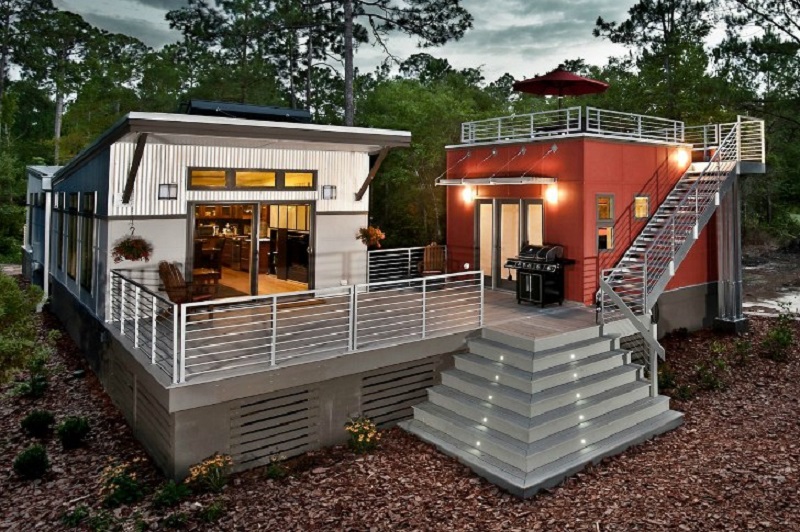We sometimes take technology for granted in our life, and this can lead us to believe we can’t live without it. Technologies such as smartphones, cars and food, water and energy supplies have all contributed towards an existence that is reliant upon these things every day; without them we could potentially struggle to live our lives in a way that felt comfortable.
We can still gain independence by living off grid; this doesn’t mean that we are required to reduce the quality of our lives. We can do this by replacing energy and supplies from the main grid with renewable alternatives. Doing this offers a sustainable alternative to a lifestyle where everything we need is available to use 24/7. Together with specialists in LPG canisters, Flogas, we take you through exactly how living off-grid can be easier than you think:
Changing over to alternative power systems
If you live of grid you will need to source your own power, whether this is using a gas cylinder or solar energy. Solar energy produces around 3,400kWh of free electricity every year.
People with small children could live off a solar panel system that produces 3.4kW of power as this is the required amount for a family home. A 2kW to 3kW solar panel would produce enough energy for smaller homes with less people living in them. A 3kW solar system will cost around £5,000 – £6,000 overall and will be a great investment based on the amount of free electricity you will procure during its lifetime.
It’s recommended to have a backup system in place, especially when you live off grid as solar panels can fail to work if the weather is cloudy. Alternatively, you could consider a domestic wind turbine which you can install and it produces 5kW to 6kW of energy; you can also be paid for any energy you don’t use which is sent back to the grid.
Keeping your costs reduced
If you don’t live near an energy supplier, it is expressed that you only use the power that you need. To keep costs efficient and to live within your own budget, you could use LED bulbs instead of incandescent bulbs, which will help reduce costs by 75%; you could look at getting rid of any electrical appliances that you don’t need and be sure to turn off all electrical appliances at the mains once they have been used.
Sewage system
It will become essential to source your own water, especially if you don’t live near a natural source. Wells can cost between £10,000 – 20,000, and this is dependent upon how deep the well is dug, and whether the well will be used as a source of drinking water or for other domestic purposes.
You will need a sceptic tank to dispose of any water waste. Along with this, you will need to install a greywater system. The water used in dishwashing, sinks, baths and showers can be re-used if treated. Doing this will also benefit the lifespan of your well, as you can reuse water that has already been cleaned and brought to the surface.
Reducing your waste
The energy, food and water that you use, should be regularly monitored for your own benefit to see how much you are using. If you slip, then your reliance on these things may reach unsustainable
levels, which may impact your ability to live off-grid. There are various ways to keep on top of your
waste – and these include.
Short Showers
Using artificial lighting
Turn off lights when exiting a room
Using food leftovers for compost to create rich soil for growing more fruit and vegetables
Attend workshops that can learn you how to repair damages to the home or how to grow your own food.
Adopt into hunting and fishing to catch fresh food, will help reduce your reliance upon supermarkets that you would usually have to drive to
Lifestyle changes
Deciding to live off grid can be a big change to your life, altering your actual lifestyle might be worth considering too. There are other ways to live off grid, and you will make many mistakes along the way, but becoming self-sufficient may just be the key to your unlocked potential and happiness.


